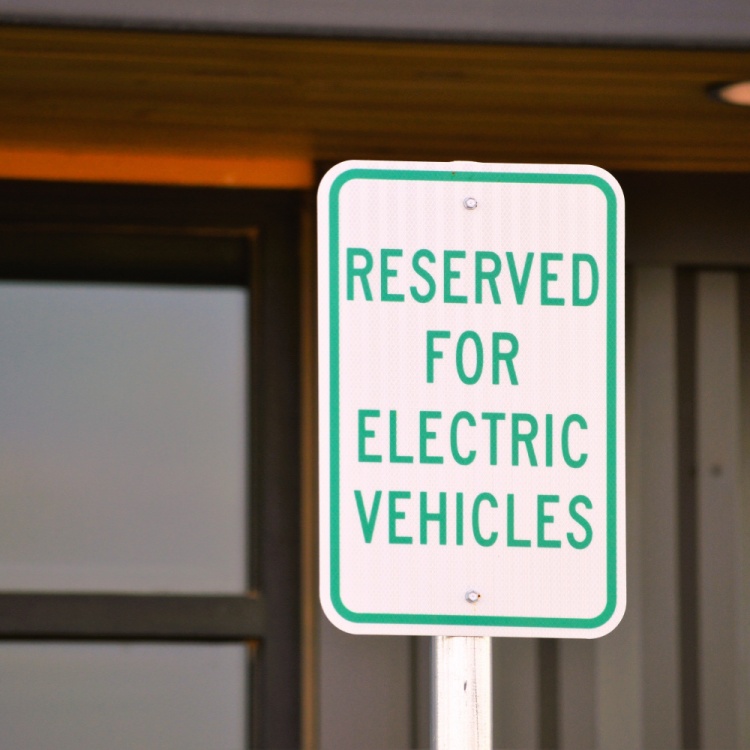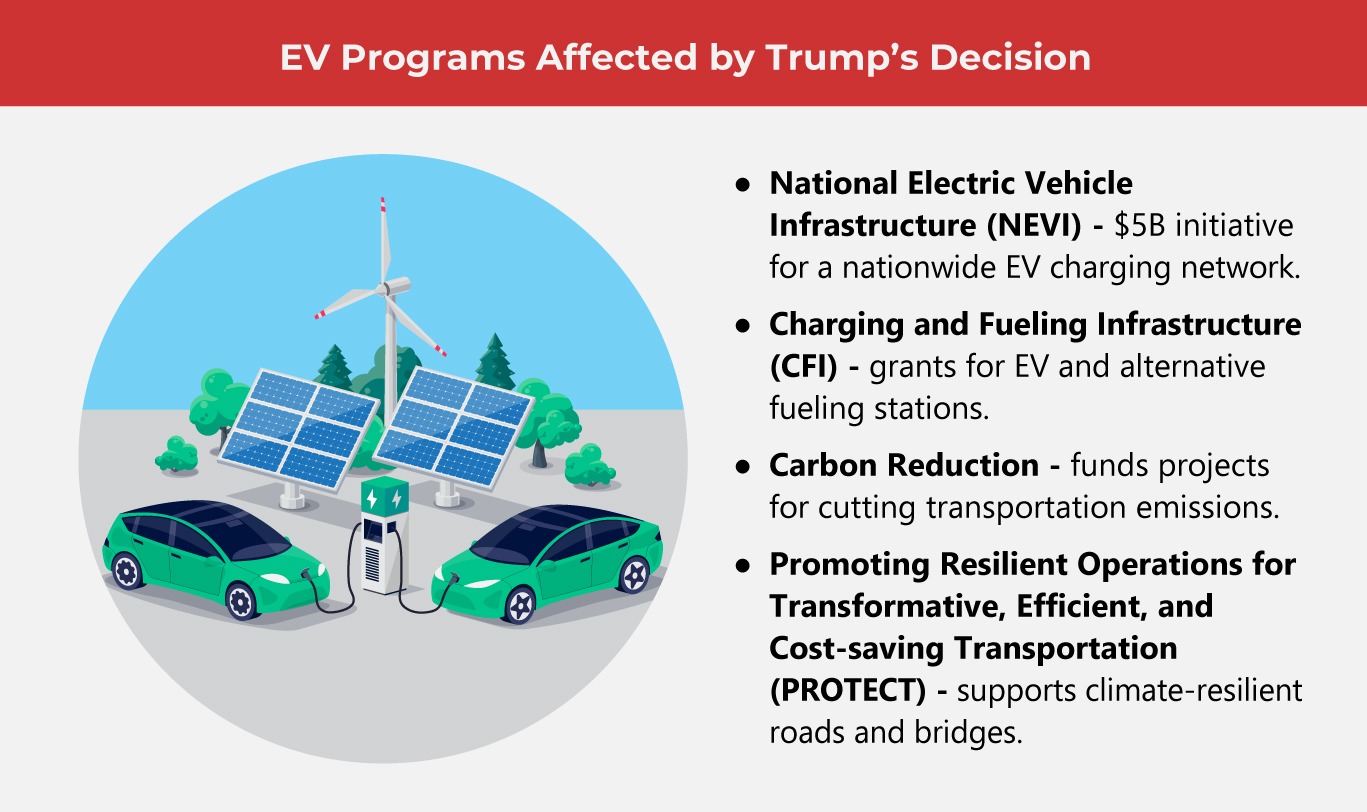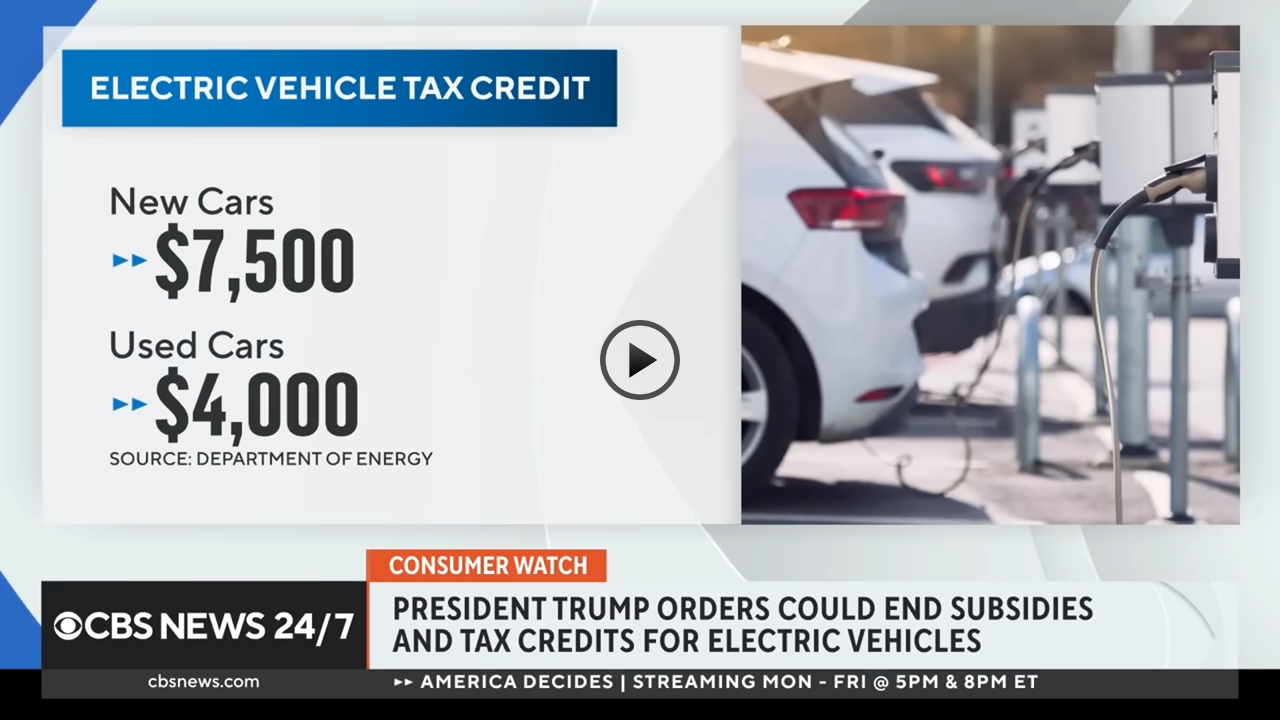Can Trump Break the EV Industry?

Early in his return to office, US President Donald Trump signed an order halting payments for federal electric vehicle (EV) charging initiatives, specifically targeting the National Electric Vehicle Infrastructure (NEVI) and the Charging and Fueling Infrastructure (CFI) programs. Though his decision made waves, these programs are deeply embedded in law, broadly backed, and built to endure political shifts.
Last February, the Trump administration ordered states to halt spending on EV charging infrastructure, previously funded under Biden. Trump criticized federal support for chargers, calling it “an incredible waste of taxpayer dollars”, a move that could reshape the automotive market.
Consequently, the Federal Highway Administration (FHWA), which oversees NEVI funding, ordered states to halt their EV charging plans until new rules were issued. NEVI is a government funded program that supports the development of a nationwide EV charging network, particularly along major highways and designated corridors.
Trump’s move is part of a broader push to roll back Biden-era environmental policies and incentives. In a letter to state transportation officials, the FHWA announced it was revoking 2023 NEVI program guidelines.
“Effective immediately, no new obligations may occur under the NEVI Formula Program until the updated final NEVI Formula Program Guidance is issued and new State plans are submitted and approved,” FHWA stated in the letter.
The letter assures states they can still be reimbursed for ongoing EV charging projects to avoid financial disruptions. The FHWA plans to release revised NEVI program guidelines in the spring, followed by a public comment period. States will then need to resubmit their annual implementation plans for all program years.
Potential impacts
According to the NEVI Awards Dashboard, 56 charging stations funded by NEVI are currently operational nationwide. Before leaving office, Biden administration officials stated that hundreds more were in progress, with many expected to launch within the next two years.
The administration might require congressional approval to block state spending, though it's uncertain if that will happen. Industry experts believe consumer demand will keep expanding the charging network, even without federal support.
Legal experts argue that Trump cannot legally dismantle these programs, as it would likely violate the Impoundment Control Act of 1974, which prevents presidents from withholding congressionally approved funds. The president has vowed to repeal the law and shift more power to the executive branch, but doing so would still require congressional approval.
Along with halting EV charging funds, Trump revoked a Biden-era order aiming for 50% of new car sales to be electric by 2030. He also intends to roll back Environmental Protection Agency (EPA) regulations that enforce stricter emissions limits to combat climate change. Additionally, he seeks to eliminate EV incentives, including the $7,500 tax credit for buyers. These moves could also significantly impact the renewable energy market, though his executive orders have yet to implement these changes.
Rolling back these programs is legally complex. NEVI funding is linked to state-approved plans, and once funds are designated through contracts or grants, binding arrangements prevent them from being revoked. Unless there is proven misuse or noncompliance—neither of which has surfaced—rescinding allocated funds is nearly impossible.
Even for unallocated funds, regulatory frameworks ensure continuity. NEVI’s structured funding model allows states adaptability in launching projects, and any effort to dismantle the program would likely face legal obstacles.
Still, Trump’s decision could significantly delay the rollout of NEVI-funded charging stations, which were already hindered by bureaucratic hurdles. Although the Biden administration had authorized state access to the funds, only a small portion had been utilized.
During the uncertainty, no fewer than six states—Alabama, Oklahoma, Missouri, Rhode Island, Ohio, and Nebraska—have suspended their NEVI initiatives. Rhode Island and Ohio were among the leading states in implementing the program.
About NEVI
The NEVI program has garnered widespread, bipartisan support. By January 2025, all 50 states, along with the District of Columbia and Puerto Rico, had secured approval for their EV Infrastructure Deployment Plans.
Crafted by state transportation agencies, NEVI identifies strategic locations for EV chargers along key routes, balancing national coverage with local demand. This initiative enhances the economic value of EV infrastructure by granting participants access to a $5 billion fund distributed over five years to establish a dependable nationwide charging network.
By the end of 2024, states had been awarded $2.4 billion through the NEVI program. Since these funds are linked to approved state plans and contractual agreements, reversing or halting their use would be extremely difficult.
CFI and other programs under threat
While Section 7 of Trump's executive order "Terminate the Green New Deal" targets NEVI, it also aims to dismantle the CFI Grant Program, which together allocate $7.5 billion to expand the EV charging network in the US. Trump seeks to block the release of remaining funds from these initiatives.
In contrast to NEVI, the CFI program functions as a competitive grant initiative. Metropolitan planning organizations, states, and local governments must apply for funding in multiple phases. As of early 2024, a total of $623 million had been distributed to 47 projects across 22 states and Puerto Rico, supporting the installation of 7,500 charging ports. While participation varies by state, the program enables diverse applicants to access funding tailored to local infrastructure needs.
Trump’s executive order threatens additional U.S. Department of Transportation initiatives focused on sustainability and environmental indicators. The Carbon Reduction program, which funds efforts to cut greenhouse gas emissions, and the Promoting Resilient Operations for Transformative, Efficient, and Cost-saving Transportation (PROTECT) program, which strengthens climate resilience in transportation infrastructure, face uncertainty. Like NEVI, these initiatives play a crucial role in modernizing the nation’s transportation network, tackling climate challenges, and bolstering energy security.
EV expansion remains on track
Despite Trump's push to halt funding, bipartisan support and market demand ensure that EV infrastructure continues to grow. NEVI and CFI play a key role in expanding charging networks, driven by consumer demand rather than regulations. These investments create jobs, enhance air quality, and strengthen energy security.
Beyond federal programs, private companies have invested billions in charging infrastructure. Industry leaders believe driver demand will sustain growth, even if the pace slows temporarily.
However, some worry that delaying crucial charging infrastructure could hinder the EV transition, potentially affecting sales and weakening the U.S. automobile industry’s market share as global competitors continue expanding their electric vehicle presence.
Trump’s move to freeze federal EV funding faces legal and logistical hurdles. Every state is engaged in the NEVI program, and the groundwork for a national charging network is already in motion. These initiatives, backed by strong social indicators, reflect public demand for cleaner transportation, making a full reversal unlikely despite political resistance.
The EV market must now adapt to shifting policies, relying on private investment to bridge funding gaps. As the industry pushes for future-ready infrastructure, its response will shape the trajectory of electric mobility.
As one of the Top 20 EMS companies in the world, IMI has over 40 years of experience in providing electronics manufacturing and technology solutions.
We are ready to support your business on a global scale.
Our proven technical expertise, worldwide reach, and vast experience in high-growth and emerging markets make us the ideal global manufacturing solutions partner.
Let's work together to build our future today.
Other Blog




